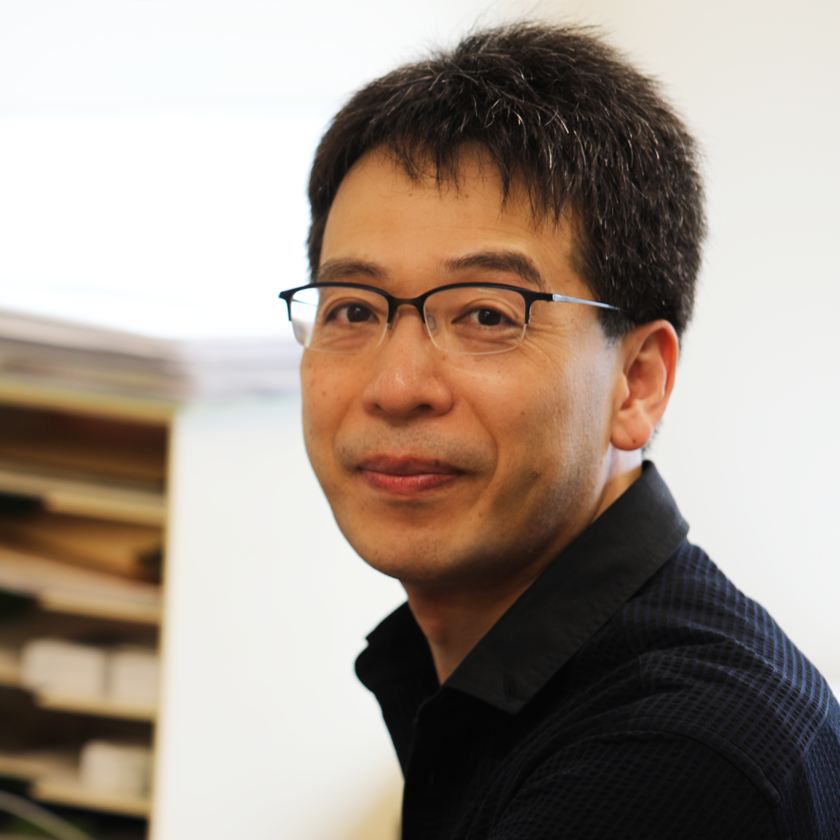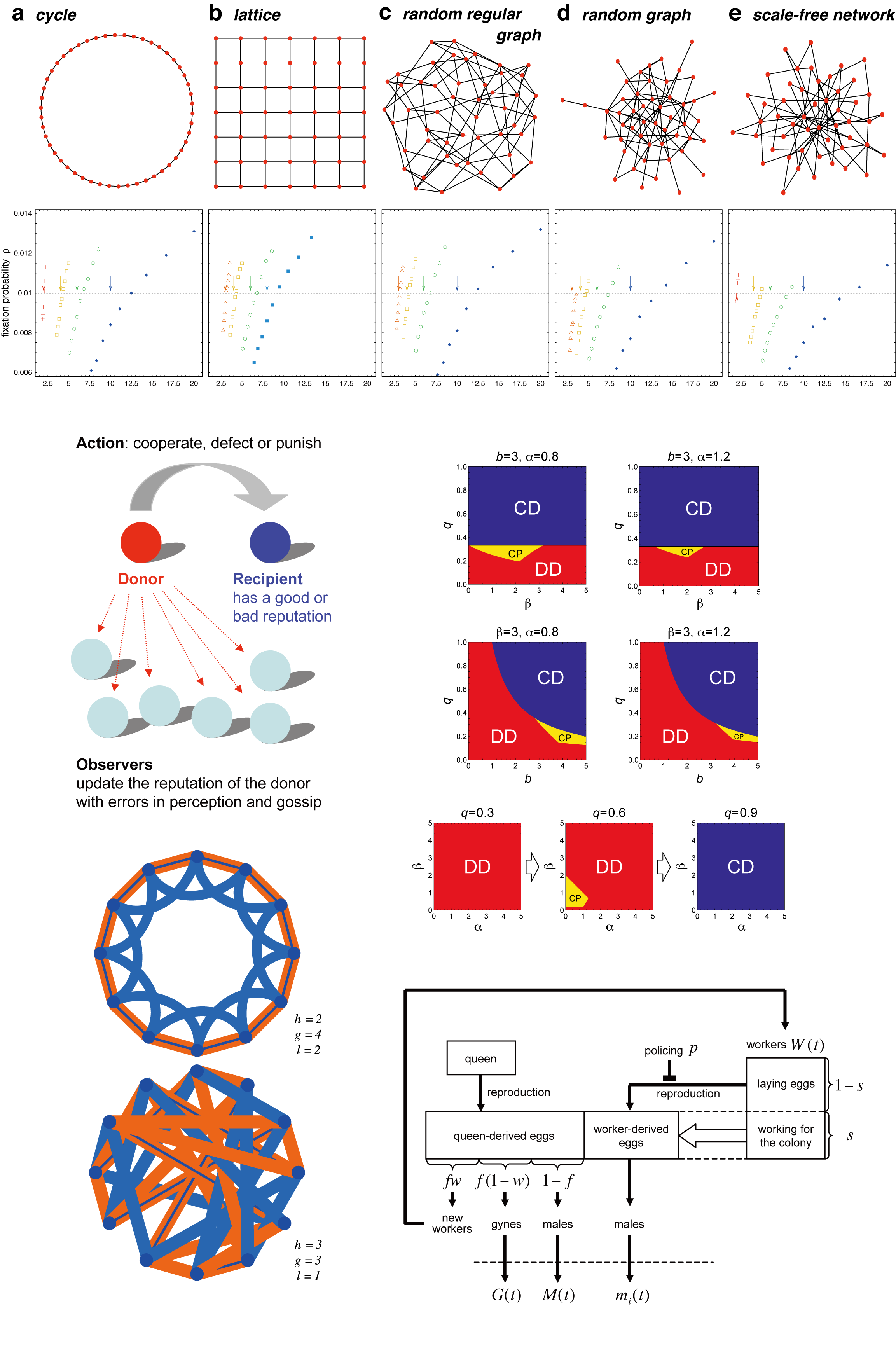Professor Hisashi Ohtsuki
Mathematical Biology

Hisashi Ohtsuki
Professor
| Research Area | Mathematical Biology |
|---|---|
| Google Scholar | |
| ResearchMap | |
| Interview |

When starved, cells of slime mold, Dictyostelium discoideum, aggregate and some of them die to form stalks in order for others to disperse to a better location. In most eusocial insects such as bees and ants, queens dominate reproduction whereas workers are specialized in various labors in the colony. Reciprocal cooperation forms a basis of human societies. Cooperation is ubiquitous in nature, yet its evolutionary origin is paradoxical because one can expect the emergence of “social parasites” which do not pay the cost but enjoy the benefit of cooperation. One of my main goals is to theoretically unveil the origin of cooperation. My research topics include: kin recognition in microorganisms, dynamic optimization in ant colonies, generalization of inclusive fitness theory, interplay between population structure and evolutionary dynamics, indirect reciprocity in humans, evolution of punishment and reward, and evolution of dominance hierarchy. I also work on modeling of animal behavior, species diversity, cultural evolution, social networks, human life-history evolution, and cancer progression. In addition, I study mathematical foundations of evolutionary game theory and adaptive dynamics theory.
Selected Publications, Books etc.
- 1.Ohtsuki, H., Iwasa, Y. & Nowak, M. A. "Reputation effects in public and private interactions." PLOS Computational Biology (2015) 11(11), e1004527.
- 2.Kobayashi, Y., Wakano, J. Y. & Ohtsuki, H. "A paradox of cumulative culture." Journal of Theoretical Biology (2015) 379, 79-88.
- 3.Úbeda, F. Ohtsuki, H. & Gardner, A. "Ecology drives intragenomic conflict over menopause." Ecology Letters (2014) 17(2), 165-174.
- 4.Rand, D. G., Tarnita, C. E., Ohtsuki, H. & Nowak, M. A. "Evolution of fairness in the one-shot anonymous Ultimatum Game." Proceedings of the National Academy of Sciences of the United States of America (2013) 110(7), 2581-2586.
- 5.Ohtsuki, H. "Evolutionary games in Wright's island model: kin selection meets evolutionary game theory." Evolution (2010) 64(12), 3344-3353.

